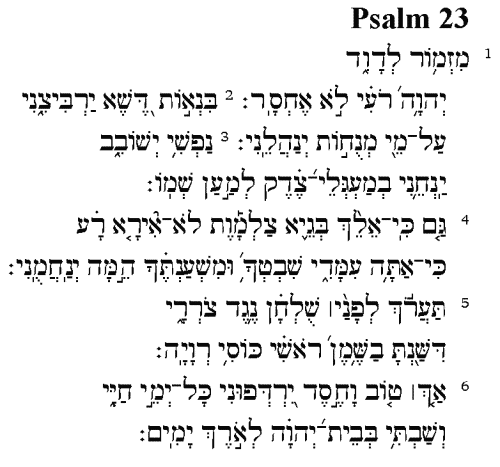
T. David Gordon has an fascinating article ("Distractions from Orthodox", Modern Reformation , Fall 2008) that points out the necessity and difficulty in trying to define 'orthodoxy' in the current ecclesiastical climate. One man's liberalism is another man's fundamentalism. How ever are we to know where to draw the lines of who's "in" and who's "out"? How do we decide what belongs outside as heresy, what belongs outside but should still to be regarded as evangelical, what we can agree-to-disagree over and remain in union with one another in a given church/denomination, and what things we must all confess.
I still vividly remember my chats with elder Mac Laurie (way back during my summer Santa Barbara internship in 2000) and his growing concern that, in the name of trying to 'protect' things from 'broadening' in the church, there was a growing momentum in some quarters to become increasingly 'narrow' over non-essential. Gordon relates a similar concern:
I knew an individual once whose recurring theme was that the church (generally or specifically) was moving in heterodox directions. When I asked for evidence of this movement, he almost always cited some matter that appeared in none of the historic creeds of the church. So, what sounded at first as though some of the theological cows had left the barn, ended up being that he had brought in some carpenters and made a smaller barn.
It's this 'making the barn smaller' that concerns me as well. Gordon continues: "Pendulums swing curiously, racing through the middle and tarrying at the extremes. The church, likewise, might swing from the extreme of not caring to talk seriously about doctrine on the one hand, to the other extreme of making every doctrinal discussion a test of orthodoxy on the other."
In short, "...not every such discussion need be regarded as a test of orthodoxy or a term of communion." If (and when!) they do, it leads to what Gordon refers to as the 'toilet bowel' effect:
My students are alternately amused and disturbed by my occasional reference to what I inelegantly call the "toilet effect." Having completed the task that brought you to the toilet in the first place, you reach around and push the handle, but accidentally bump the Reader's Digest (or your "to-do" list, your spouse's toothbrush, or the family Chihuahua) off the sink into the toilet also. The swirl having already begun, the Digest is doomed to a most unliterary fate. It suffers the "toilet effect," wasted in the effort to remove genuine waste. The church not infrequently suffers also from the toilet effect. In the effort to rid itself of some perceived effluvium or another, other resources, energies, graces, or gifts sometimes get caught in the swirl and disappear also.
I suppose (to be fair) this is a struggle that any ecclesiastical group/denomination has to deal with, particularly given the plethora of 'issues' that are bombarding upon us from all sides. But as one who has worked in a number of different Presbyteries, States, and even Countries, I can attest that there is nothing imaginary about this so-called 'toilet effect' in Reformed churches.
Gordon continues:
Satan is a distracter/diverter of the church's resources, and we should not be unaware of his devices. He loves waste, especially the church's waste, because it blunts her warfare against him. He loves the toilet effect, when the church's greater resources disappear in overzealous attempts to achieve smaller gains. Indeed, I often wonder if the Evil One is not the inventor of the toilet effect. The temptation of Christ in Matthew 4 was not a moral temptation in any ordinary sense of the term. Eating bread is not sinful. Rather, Satan tempted Christ to divert his distinctive messianic power from its primary purpose of rescuing the lost from Satan's dominion. Similarly, Satan frequently, perhaps ordinarily, tempts the church to divert its energies from its primary purpose of rescuing the lost from Satan's dominion.
But isn't this just another attempt to do away with 'sound doctrine' in the name of evangelistic zeal? Not if we understand the kinds of things Gordon is concerned about.
Things that are legitimate to address in their own right need not occupy an undue amount of the church's resources, and some such issues need never be resolved. Examples of such studied and deliberate ambiguities in the Westminster standards, for instance, include: infant salvation ("elect infants dying in infancy"), the nature of obedience owed to the civil magistrate ("obedience to his lawful commands"), post- and amillennialism, and mediate or immediate imputation of sin. Other truths are so woven into the fabric of theology that they must be regarded as a matter either of general Christian orthodoxy (the articles of the Apostles' Creed for instance) or a matter of the particular orthodoxy of one of its branches (Lutheran versus Reformed understanding of the nature of Christ's presence in the Lord's Supper). But other matters, worthy of Christian conversation, needn't be finally resolved.
In other words, we have to recognize that not all doctrinal disputes and matters are created equal. This is where I think historical theology can play a positive role in assessing, as it were, the size of our theological boundaries. You need to have some perspective as to whether certain doctrines deserve a robust defense at all costs and what doctrinal differences can and should be tolerated within a given tradition.
Gordon goes on to list and explore his "...candidates for winners of the coveted toilet effect":
(1) The length of creation days
(2) Van Tillian apologetics
(3) Biblical theology vs. Systematic theology
(4) Christian America & the culture wars
(5) Christian education
(6) Women in the military
You can read his discussion for yourself under each one, if you aren't familiar with the issues. His concern, as I see it, is not that these issues should be swept under the rug entirely. Rather he's pleading for a broader 'ecumenical'-spirit when faced with issues that genuine brothers in the same tradition disagree over. One might not expect this of Dr. Gordon, given some of the polemical writing style. Yet, as one gets to know him (and meets other people that previously worked with him), you'll find that he's 'ecumenical' in the best sense of the term when dealing with others in a Reformed church setting.
















